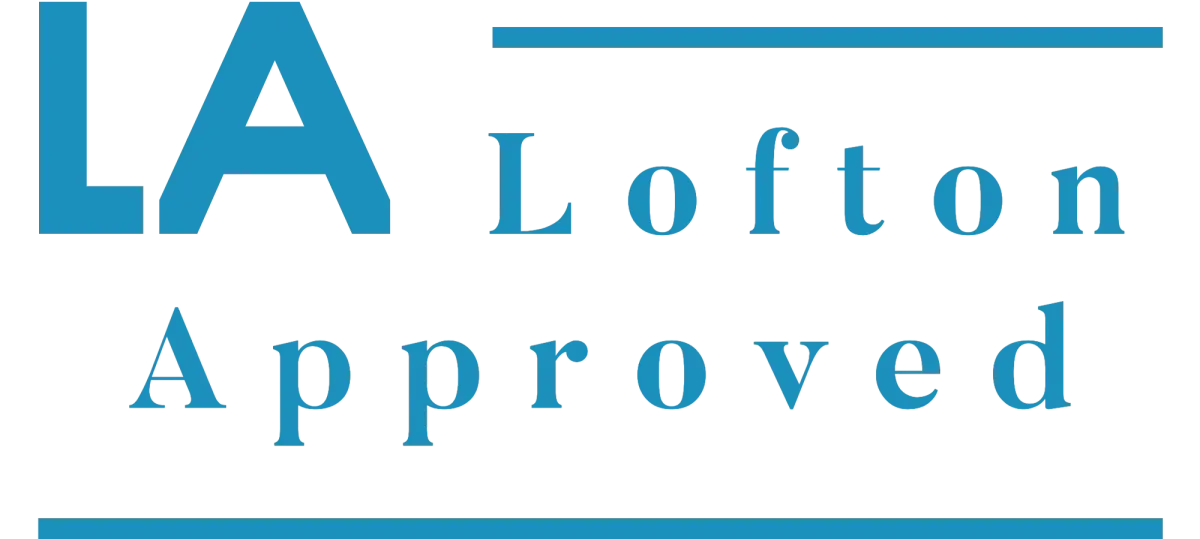Do You Keep Starting Things You Never Finish?
And What's It Costing You Every Month
You Don't Follow Through?
Here's the brutal truth about business success: it's not the people with the best ideas who win. It's the people who actually execute on their ideas consistently. I learned this lesson repeatedly in my corporate days - brilliant strategies meant nothing without disciplined implementation.

Do You Keep Starting Things You Never Finish?

And What's It Costing You Every Month
You Don't Follow Through?
Here's the brutal truth about business success: it's not the people with the best ideas who win. It's the people who actually execute on their ideas consistently. I learned this lesson repeatedly in my corporate days - brilliant strategies meant nothing without disciplined implementation.
Why Smart, Capable Business Owners Struggle with Follow-Through
The Questions That Keep You Up at Night
Why do you have 47 great ideas but only implement 3 of them?
Because planning feels productive, but implementation feels risky. Your brain rewards you for making plans with the same dopamine hit as actually completing tasks. So you keep planning instead of doing.
The Distraction Cycle
Why does every 'urgent' issue derail your important projects?
Because you don't have systems to distinguish between what feels urgent and what's actually important. Without clear priorities and protected time, everything becomes a crisis.
The Motivation Trap
Why do you start projects with excitement but lose steam after two weeks?
Because you're relying on motivation instead of systems. Motivation is what gets you started. Systems are what keep you going when motivation fades.
The Perfectionism Paralysis
Why do you research and plan endlessly but struggle to take action?
Because taking action means accepting imperfection. It's easier to keep planning than to start executing and potentially fail. But perfect plans that never get implemented are worthless.
The implementation gap isn't about intelligence, capability, or even time management. It's about having systems that bridge the space between good intentions and consistent action.
Why Smart, Capable
Business Owners
Struggle with Follow-Through
The Questions That
Keep You Up at Night
Why do you have 47 great ideas
but only implement 3 of them?
Because planning feels productive, but implementation feels risky. Your brain rewards you for making plans with the same dopamine hit as actually completing tasks. So you keep planning instead of doing.
The Distraction Cycle
Why does every 'urgent' issue
derail your important projects?
Because you don't have systems to distinguish between what feels urgent and what's actually important. Without clear priorities and protected time, everything becomes a crisis.
The Motivation Trap
Why do you start projects
with excitement but lose steam
after two weeks?
Because you're relying on motivation instead of systems. Motivation is what gets you started. Systems are what keep you going when motivation fades.
The Perfectionism Paralysis
Why do you research and plan endlessly but struggle to take action?
Because taking action means accepting imperfection. It's easier to keep planning than to start executing and potentially fail. But perfect plans that never get implemented are worthless.
The implementation gap isn't about intelligence, capability, or even time management. It's about having systems that bridge the space between good intentions and consistent action.
My Million-Dollar Implementation Lesson

The Corporate Wake-Up Call:
In my corporate days, I watched a brilliant strategic plan collect dust for eight months while the company burned through cash. The plan was solid. The strategy was sound. The resources were available. But nobody was held accountable for implementation.
We had endless meetings about the plan, revisions to the plan, and discussions about the plan. But we didn't have anyone whose job it was to make sure the plan actually happened.
The Personal Reckoning
That's when I realized I was guilty of the same thing in my own projects. I had a filing cabinet full of great ideas, detailed plans, and strategic initiatives that never saw the light of day. I was great at starting things and terrible at finishing them.
The breakthrough came when I started working with an executive coach who didn't just help me make plans - he held me accountable for executing them. Every two weeks, I had to report on what I'd actually accomplished, not what I intended to accomplish.
The Transformation
Within six months, I had implemented more strategic initiatives than I had in the previous two years combined. Not because I suddenly got smarter or less busy, but because I had someone who expected results, not just reports.
That experience changed how I approach every important goal. It's not enough to have a plan. You need someone who will hold you accountable for working the plan.
That's exactly why accountability coaching works: it bridges the gap between good intentions and consistent execution through structured support and regular check-ins.
My Million-Dollar Implementation Lesson

The Corporate Wake-Up Call:
In my corporate days, I watched a brilliant strategic plan collect dust for eight months while the company burned through cash. The plan was solid. The strategy was sound. The resources were available. But nobody was held accountable for implementation.
We had endless meetings about the plan, revisions to the plan, and discussions about the plan. But we didn't have anyone whose job it was to make sure the plan actually happened.
The Personal Reckoning
That's when I realized I was guilty of the same thing in my own projects. I had a filing cabinet full of great ideas, detailed plans, and strategic initiatives that never saw the light of day. I was great at starting things and terrible at finishing them.
The breakthrough came when I started working with an executive coach who didn't just help me make plans—he held me accountable for executing them. Every two weeks, I had to report on what I'd actually accomplished, not what I intended to accomplish.
The Transformation
Within six months, I had implemented more strategic initiatives than I had in the previous two years combined. Not because I suddenly got smarter or less busy, but because I had someone who expected results, not just reports.
That experience changed how I approach every important goal. It's not enough to have a plan. You need someone who will hold you accountable for working the plan.
That's exactly why accountability coaching works: it bridges the gap between good intentions and consistent execution through structured support and regular check-ins.
Do These Implementation Challenges Sound Familiar?
The Start-Stop Cycle
Do you start projects with great intentions
but lose momentum after a few weeks?
You're not alone. 92% of business owners struggle with consistent follow-through. The problem isn't lack of motivation - it's lack of systematic accountability.
The Priority Problem
Do 'urgent' issues constantly derail
your important long-term projects?
Without clear priorities and protected time, everything feels equally important. Accountability coaching helps you distinguish between what's urgent and what's actually moving your business forward.
The Isolation Effect
Do you feel like you're the only one
who cares about your big goals?
When you're the only one tracking your progress, it's easy to rationalize delays. Having an external accountability partner changes everything.
The Perfectionism Trap
Do you research and plan endlessly
but struggle to take imperfect action?
Perfect plans that never get implemented are worthless. Accountability coaching helps you take consistent imperfect action instead of waiting for perfect conditions.
The Excuse Factory
Do you always have good reasons
why you didn't hit your goals?
Reasons and excuses sound the same but create different results. Accountability coaching helps you focus on solutions instead of justifications.
The Solution
If these challenges resonate with you, accountability coaching provides the structured support system that turns your good intentions into consistent results.
Do These Implementation Challenges Sound Familiar?
The Start-Stop Cycle
Do you start projects with great intentions but lose momentum
after a few weeks?
You're not alone. 92% of business owners struggle with consistent follow-through. The problem isn't lack of motivation - it's lack of systematic accountability.
The Priority Problem
Do 'urgent' issues constantly derail
your important long-term projects?
Without clear priorities and protected time, everything feels equally important. Accountability coaching helps you distinguish between what's urgent and what's actually moving your business forward.
The Isolation Effect
Do you feel like you're the only one
who cares about your big goals?
When you're the only one tracking your progress, it's easy to rationalize delays. Having an external accountability partner changes everything.
The Perfectionism Trap
Do you research and plan endlessly
but struggle to take imperfect action?
Perfect plans that never get implemented are worthless. Accountability coaching helps you take consistent imperfect action instead of waiting for perfect conditions.
The Excuse Factory
Do you always have good reasons
why you didn't hit your goals?
Reasons and excuses sound the same but create different results. Accountability coaching helps you focus on solutions instead of justifications.
The Solution
If these challenges resonate with you, accountability coaching provides the structured support system that turns your good intentions into consistent results.
The Lofton Approved Accountability System: How We Turn Plans Into Results
The Clarity Foundation
Crystal-Clear Goals and Success Metrics
Vague goals create vague results. We start by defining exactly what success looks like, when you'll achieve it, and how you'll measure progress along the way.
What We Create: Specific, measurable goals with clear deadlines, progress milestones, and success metrics that leave no room for ambiguity or self-deception.
Example: Instead of 'grow the business,' we define 'increase monthly recurring revenue from $47,000 to $65,000 by December 31st through acquiring 18 new clients in our target market segment.

The Action Architecture
Breaking Big Goals Into Manageable Daily Actions
Big goals feel overwhelming. Small, consistent actions feel achievable. We reverse-engineer your major objectives into daily and weekly action steps that build unstoppable momentum.
Our Process: Goal decomposition, priority sequencing, time blocking, and daily action planning that makes progress feel inevitable instead of impossible.
Real Application: A client wanting to launch a new service line had 47 tasks on their list. We organized them into a 12-week implementation sequence with 3-4 specific actions per week.

The Progress Tracking System
Real-Time Visibility Into What's Actually Happening
What gets measured gets done. We create simple, powerful tracking systems that give you and me real-time visibility into your progress, obstacles, and opportunities.
Tracking Elements: Daily action completion, weekly milestone progress, obstacle identification, solution implementation, and momentum measurement.
Why It Works: When you know someone is going to ask about your progress, you're 65% more likely to complete your commitments.

The Regular Check-In Protocol
Structured Sessions That Keep You On Track
Consistency beats intensity every time. Our regular check-in sessions provide the external accountability that internal motivation can't sustain long-term.
Session Structure: Weekly 30-minute sessions covering progress review, obstacle problem-solving, next-week planning, and accountability commitment.
The Accountability Effect: Knowing you'll have to report on your progress to someone who cares about your success changes how you approach every day.

The Course Correction Framework
Adapting Quickly When Things
Don't Go As Planned
No plan survives contact with reality unchanged. When obstacles arise or priorities shift, we quickly adjust your approach while maintaining momentum toward your ultimate goal.
Adaptation Process: Obstacle analysis, solution brainstorming, plan modification, timeline adjustment, and renewed commitment to the updated approach.
Success Principle: It's not about perfect execution—it's about consistent course correction that keeps you moving toward your target.
The Lofton Approved Accountability System:
How We Turn Plans Into Results
The Clarity Foundation
Crystal-Clear Goals
and Success Metrics
Vague goals create vague results. We start by defining exactly what success looks like, when you'll achieve it, and how you'll measure progress along the way.
What We Create: Specific, measurable goals with clear deadlines, progress milestones, and success metrics that leave no room for ambiguity or self-deception.
Example: Instead of 'grow the business,' we define 'increase monthly recurring revenue from $47,000 to $65,000 by December 31st through acquiring 18 new clients in our target market segment.

The Action Architecture
Breaking Big Goals Into Manageable Daily Actions
Big goals feel overwhelming. Small, consistent actions feel achievable. We reverse-engineer your major objectives into daily and weekly action steps that build unstoppable momentum.
Our Process: Goal decomposition, priority sequencing, time blocking, and daily action planning that makes progress feel inevitable instead of impossible.
Real Application: A client wanting to launch a new service line had 47 tasks on their list. We organized them into a 12-week implementation sequence with 3-4 specific actions per week.

The Progress Tracking System
Real-Time Visibility Into
What's Actually Happening
What gets measured gets done. We create simple, powerful tracking systems that give you and me real-time visibility into your progress, obstacles, and opportunities.
Tracking Elements: Daily action completion, weekly milestone progress, obstacle identification, solution implementation, and momentum measurement.
Why It Works: When you know someone is going to ask about your progress, you're 65% more likely to complete your commitments.

The Regular Check-In Protocol
Structured Sessions That
Keep You On Track
Consistency beats intensity every time. Our regular check-in sessions provide the external accountability that internal motivation can't sustain long-term.
Session Structure: Weekly 30-minute sessions covering progress review, obstacle problem-solving, next-week planning, and accountability commitment.
The Accountability Effect: Knowing you'll have to report on your progress to someone who cares about your success changes how you approach every day.

The Course Correction Framework
Adapting Quickly When
ThingsDon't Go As Planned
No plan survives contact with reality unchanged. When obstacles arise or priorities shift, we quickly adjust your approach while maintaining momentum toward your ultimate goal.
Adaptation Process: Obstacle analysis, solution brainstorming, plan modification, timeline adjustment, and renewed commitment to the updated approach.
Success Principle: It's not about perfect execution—it's about consistent course correction that keeps you moving toward your target.
How Accountability Coaching Differs from Traditional Business Coaching
Traditional Business Coaching
Focus on strategy development and problem-solving
Emphasis on insights, perspectives, and new approaches
Monthly or bi-weekly sessions
Success measured by awareness and understanding
Coach provides guidance and advice
Accountability Coaching
Focus on implementation and execution
Emphasis on action-taking and follow-through
Weekly sessions with progress tracking
Success measured by actual results and completion
Coach provides structured support and external accountability
You don't need more good ideas - you need to execute on the ideas you already have. You don't need more strategy - you need more consistent action. You don't need more insights - you need more implementation.
Why External Accountability Actually Works: The Research

Goal Achievement Rates
Thinking about a goal: 10% achievement rate
Writing down a goal: 25% achievement rate
Sharing your goal with someone: 40% achievement rate
Regular accountability check-ins: 65% achievement rate
Studies show that people are 65% more likely to complete a goal when they commit to someone else, and up to 95% more likely when they have regular progress meetings with their accountability partner.
External accountability works because it leverages social psychology principles that internal motivation can't sustain. When someone else expects results from you, your brain treats it differently than promises you make to yourself.
Accountability Coaching Investment: What It Costs to Turn Plans Into Results
Accountability coaching represents one of the highest-ROI investments you can make in your business success.
But here's how to think about it: What's the cost of another year of unfinished projects? What's the value of finally completing the initiatives that have been on your list for months? What's it worth to develop the reputation (with yourself) of being someone who follows through?
If accountability coaching helps you complete just one project that's been stalled for months, it pays for itself. Most clients complete 3-5 major initiatives in their first six months.
Frequently Asked Questions
What is accountability coaching and how does it work?
Accountability coaching provides structured support to help you follow through on your goals. At Lofton Approved, we turn vague intentions into measurable results by setting clear targets, creating action plans, tracking progress, and ensuring you stay on course.
How is accountability coaching different from traditional business coaching?
Traditional coaching often focuses on strategy and big ideas. Accountability coaching ensures those ideas actually get executed. We don’t just talk about what to do — we help you take consistent action until your goals are completed.
What kinds of results can I expect from accountability coaching?
Most clients complete 3–5 major initiatives within their first six months. Typical outcomes include finishing projects that have been stalled for months, improving consistency, and building habits that directly increase profitability and efficiency.
Who is accountability coaching best suited for?
Accountability coaching is ideal for business owners, entrepreneurs, and sales professionals who have great ideas but struggle with follow-through. If you’re tired of starting projects you never finish, this is designed for you.
How long does it take to see results?
You’ll likely notice progress within the first 30 days as you begin completing tasks and building momentum. Full transformation usually happens within 3–6 months of consistent accountability coaching.
What makes Lofton Approved accountability coaching different?
Our system combines clarity, structured action steps, progress tracking, regular check-ins, and course correction. It’s not about motivation or theory — it’s about building the habits and systems that ensure results.
How do I get started with Lofton Approved accountability coaching?
The first step is a free Business Assessment. Together, we’ll identify your biggest opportunities, clarify what’s been holding you back, and determine whether accountability coaching is the right fit for your goals.
Are You Ready to Finally Follow Through?
You have two choices: keep making the same promises to yourself and hoping this time will be different, or get the external accountability that turns your good intentions into consistent results.
Which choice will you make today?
Complimentary Implementation Assessment to identify your biggest execution obstacles.
Are You Ready to
Finally Follow Through?
You have two choices: keep making the same promises to yourself and hoping this time will be different, or get the external accountability that turns your good intentions into consistent results.
Which choice will you make today?
Complimentary Implementation Assessment to identify your biggest execution obstacles.
Coppyright 2026 | Privacy Policy | Terms & Conditions | Cookie Policy






